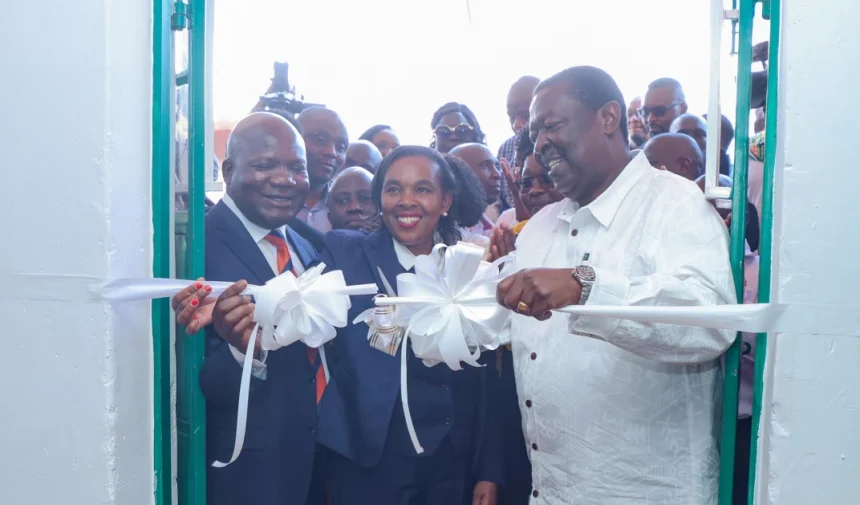Technology giant Huawei Kenya has launched two digital hubs in Kakamega County to bolster digital learning for young people.
Prime Cabinet Secretary Musalia Mudavadi and ICT CS Margaret Ndung’u launched the partnership with Konza Technopolis and the Ministry of ICT at Kakamega and Shianda Polytechnics, respectively.
Speaking at the event, Huawei Deputy CEO Steven Zang stated that the initiative will contribute to the development of the country’s digital economy.
He explained that the move is part of Huawei’s strategy to connect more people to the internet by the end of 2025.
“We promised we would connect 120 million extra people to internet access across the globe by December 2025. Today, I am very proud to share with you that Huawei has already exceeded this target 1 year early. By the end of October 2024, Huawei’s ICT solutions have brought connectivity to 121 million people in rural areas of nearly 80 countries,” he said.
“Furthermore, 34 of those countries are on the UN’s list of the world’s 46 least developed countries.”
Huawei’s government affairs Deputy CEO, Adam Lane, stated that the company is leveraging existing resources to establish additional hubs across the country.
He added that Huawei and Konza were able to create efficient digital learning hubs by partnering with TVET and other learning institutions and utilising existing facilities such as fibre networks.
“We have a huge amount of skills at Huawei that we want to share with other people, we have a wide range of training programs,” Lane said.
“Having infrastructure and skills is not useful unless you use it for something meaningful so having the Huawei or Konza cloud there, it will bring life changing impacts.”
Lane went on to say that Huawei intends to open more than 20 schools in January and has chosen special needs schools where students will be taught how to use special software for better learning.
CS Mudavadi stated that the facility will play a critical role in providing young people with digital skills, allowing them to benefit from the digital economy.
The prime CS went on to say that the hub will provide youth with employment opportunities as well as easy access to ICT education in the county.
“This is the opportunity to use technology to expand our businesses. The world of opportunities is right here in your devices. I reiterate the government’s commitment to integrate technology with our education system. Our commitment is to upscale e-learning in all learning institutions,” he said.
“I encourage stakeholders to go further in setting up more digital infrastructure.”
Kakamega Governor Fernandez Barasa also stated that the hub will contribute to the county’s digital transformation efforts.
He stated that ICT will automatically affect all other sectors of the country and help digitise service delivery.
“We need digital information in every superhighway. In fact ICT it’s managing to bridge the gap faster than we have ever imagined,” said Barasa.
This lies in the backdrop of a plan to expand digital literacy, access, and services in the country.
This has been made feasible through the Jitume program, launched to provide access to digital skills to young people.
So far, according to the programme, about 450,000 jobs have been provided with the aim of employing 1 million young people.
Likewise the government plans to set up about 1,450 digital hubs in Kenya and has so far established 274 countrywide.



